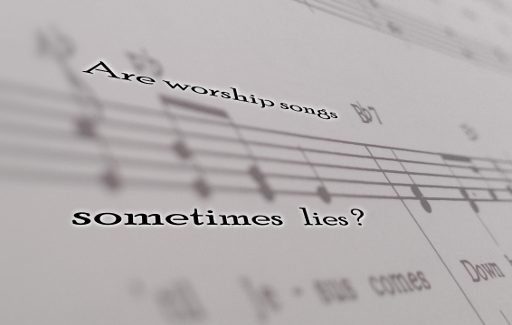Don’t Believe Everything You . . . Sing
Last week, leading up to Christmas, did you sing these words from “Away in a Manger”?
And fit us for Heaven, to live with Thee there.
Or do you remember this oldie but a goodie?
On that bright and cloudless morning when the dead in Christ shall rise,
And the glory of His resurrection share;
When His chosen ones shall gather to their home beyond the skies,
And the roll is called up yonder, I’ll be there.
Do you sing along with this rarely-printed verse of Amazing Grace now that Chris Tomlin has revitalized it in “Amazing Grace (My Chains Are Gone)”?
The earth shall soon dissolve like snow,
The sun forebear to shine;
But God, who called me here below,
Will be forever mine.
Middleton reminds us that the songs we sing have great ability to shape our beliefs. Unfortunately, these songs are reinforcing an anti-physical world bias born from ancient Greek philosophy more than the Bible. As Middleton will argue in A New Heaven and a New Earth, these sentiments – popular though they may be – are simply not biblical.
If Heaven is some spiritual home beyond the clouds, separated from all that is physical and especially this earth, what are we to do with this short preview of passages that seem to suggest a different, earth-bound future?
- In Matthew 19:28, Jesus talks about the end of the world as the “renewal of all things” (not destruction). Furthermore, Jesus tells his disciples that they will sit on thrones and rule with him in this renewed reality.
- Peter talks about a future time as “the restoration of all things,” again not a destruction (Acts 3:21).
- This “restoration” and “renewal” affects “all things,” not just souls or people (Acts 3:21; Col 1:20; Eph 1:10).
- In the Beatitudes (Matthew 5:5), the meek are told they will inherit the “world,” a sore consolation if it will be destroyed.
- John describes the culmination of God’s salvific work as the time when “the kingdom of the world has become the kingdom of our Lord” (Rev 11:15).
- Psalm 148 described full-orbed worship. Eleven verses mention various entities praising God – animals, atmospheric elements, constellation, etc. Humans are mentioned in only two of those verses. It would appear God has a relationship with far more than humanity alone.
They are catchy tunes, but are they really describing what the Bible describes as the end of life as we know it?

Very interesting observations. I was going to take exception with you on Col. 1:20, but after reading it a few times, I see that the restoration is for the “whole universe” and “all things.”
I particularly like the Good News translation. “Through the Son, God decided to bring the whole universe back to himself. God made peace through his Son’s blood on the cross and so brought back to Himself all things on earth and in heaven.”
This verse has always been a source of comfort and grace for me, but I had thought of it as applying to mankind only. Now I see even deeper meaning–all things and whole universe. And more questions. What, in heaven, did He need to bring back to Himself?
Thanks for shaking up my mind. 🙂
Please do take exception. Anytime. That is how we all wrap our mind around things. I’m thinkin this through too.
I suspect this is one of those verses Middleton would say heaven means “skies” or “heavenly realms” as in Eph 6:12. He does say elsewhere that the Bible (Paul specifically) refers to evil powers like Satan as dwelling in the air or in heavenly realms/places. So maybe that would explain this verse.